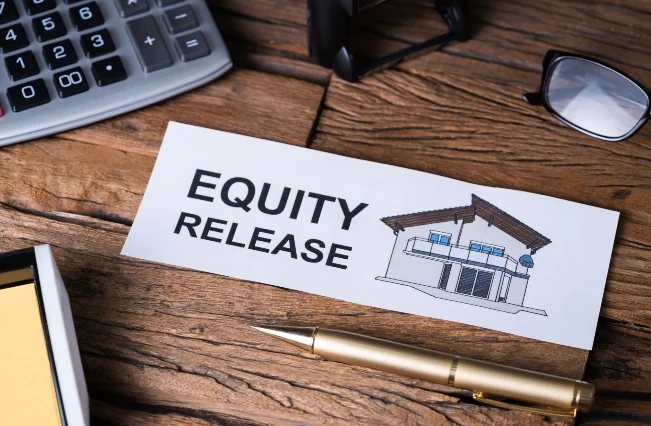Do I Need A Solicitor To Remortgage My Property?
As mortgage experts assisting homeowners across the UK, a common question we receive is, “Do I need a solicitor to remortgage my home?” The short answer is – it depends. If you are remortgaging with your existing lender, then legal help may not be required. However, if switching to a new mortgage provider, using a conveyancing solicitor can ensure the process goes smoothly.
There are many good reasons to consider remortgaging, including securing a lower interest rate, consolidating debts, or releasing equity. While tempting to try and save money by handling the legal work yourself, for most the small upfront cost of a solicitor is well worth it.
Read on as we clarify the remortgaging process, the role solicitors play, and tips for selecting one that best fits your needs.
What does a conveyancing solicitor do?
Using a conveyancing solicitor for remortgaging serves a valuable legal function – handling the transfer of mortgage responsibilities when you switch lenders. They ensure proper checks, documentation, and oversight.
Conveyancers are especially needed for complex remortgages with ownership changes, equity releases, or leaseholds. But even standard remortgages involve notable legwork, including:
- ID checks and bankruptcy/fraud searches to verify identities.
- Securing redemption statements outlining balances owed.
- Reviewing the fine print of new mortgage offers.
- Conducting Land Registry searches for any title concerns.
- Witnessing signature to certify ownership transfer.
- Facilitating repayment of the old mortgage and securing any equity.
- Registering new mortgage & owners with Land Registry.
This differs from basic rate switches with your current lender, as the “product transfer” means minimal legal changes. But otherwise, conveyancers take care of vital compilation and filing of paperwork throughout.
We know remortgaging can feel overwhelming. That’s why our panel of specialist conveyancing solicitors are on hand to demystify the process. Guiding you through the mandatory checks, legal intricacies, and responsibilities needed to be transferred between lenders. Leaving you to focus on finding your best mortgage deal, trusting the conveyancing formalities are covered.
Why do you need a solicitor to remortgage?

A conveyancing solicitor plays a critical role when remortgaging and switching lenders. They handle the formal transfer of rights to repossess the property if repayments are missed.
This ownership change happens when switching providers through remortgaging. Without conveyancer oversight, the new mortgage could not legally take effect. They remove charges from your old lender while registering the new lender’s mortgage charge.
You typically do not need conveyancing for “product transfers” – where you get a new rate with the same provider. Here, the underlying ownership and lending responsibilities are unchanged.
Beyond lender changes, conveyancers also facilitate alterations in property ownership for those:
- Removing an owner after relationships end.
- Adding a new co-owner like a partner or relative.
Can I cut the solicitor out and do it myself?
We know trying to save on legal fees is tempting when remortgaging. But attempting the process alone can cause major headaches.
Remortgaging still requires contacting your current mortgage lender, transferring deeds to the new lender, checking for exit fees or early repayment charges, signing fresh paperwork like a new mortgage deed, formally switching the legally registered ownership, and more.
Without a specialist like our partner conveyancers, risks include:
- Delays dealing with the remortgage process paperwork
- Complications communicating with all the involved lenders
- Potentially voiding the new mortgage as details weren’t handled properly
This could jeopardize your finances and property simply to avoid reasonable legal costs. We recommend using cashback offers from your new lender to cover fees instead. Or speak to your mortgage broker.
A small upfront fee prevents larger issues down the road and gives peace of mind that your ownership transfer goes smoothly. Allowing you to focus on finding the top remortgage deal!
How long does conveyancing take when remortgaging?
The typical remortgage conveyancing process takes 1-2 months from beginning to approval. Though exact timelines depend on factors like:
- Remortgaging with existing lender vs new provider.
- Conveyancer caseloads and responsiveness.
- Mortgage lender processing speeds.
- Complexity of your specific situation.
Remortgaging with your current lender often moves faster as there is less paperwork changing hands between providers. Meanwhile, most new lenders require full conveyancing support slowing things marginally.
What are the costs of using a solicitor?

When remortgaging, solicitor fees vary depending on factors like your mortgage lender, conveyancer, and unique situation. Many lenders include free conveyancing or cashback offers to cover costs. However, the service level of these basic packages is often lacking.
This is why we recommend our panel of trusted independent conveyancers. Their expertise ensures your needs are fully addressed throughout the process, not just cookie-cutter forms. And their competitive pricing paired with lender cashback incentives makes engaging their specialist support cost-effective.
Exact conveyancer costs depend on the remortgage complexity too. Basic lender switches may start from £250-500. But additional legal work for ownership transfers, equity releases, or leaseholds may incur extra fees. We find conveyancer costs tend to pay for themselves through more bespoke guidance compared to “free” alternatives though.
Reach out to our advisors anytime to explore competitively priced conveyancers for your situation. Taking advantage of cashback while gaining rock-solid legal support.
Can I add the costs of a solicitor onto my remortgage?
While some lender and administrative fees may be added to a remortgage, unfortunately conveyancing solicitor costs cannot be directly bundled into the mortgage balance. Their legal services for overseeing the ownership transfer must be paid upfront.
Solicitor for a remortgage: final words
To conclude, engaging a conveyancing solicitor is highly recommended when remortgaging to ensure you safely navigate the legal complexities involved.
While costs may initially give pause, know that our team is here to help identify affordable options that best fit your budget. We’ll optimize lender cashback offers, installment plans, or over-financed funds to cover fees.
Doing so enables accessing the specialist support needed to smoothly handle the ownership transfer, searches, documentation, registrations, and communication with your old and new lender. Avoiding easily made DIY mistakes.
Lean on our highly-rated advisors to match you with cost-effective conveyancers, demystifying the jargon and process challenges along the way as well. Empowering you to remortgage with clarity and confidence.
The conveyancing step may seem daunting, but our excellent network guides you through. Allowing you to focus on securing your ideal new rate! Please reach out with any questions.






